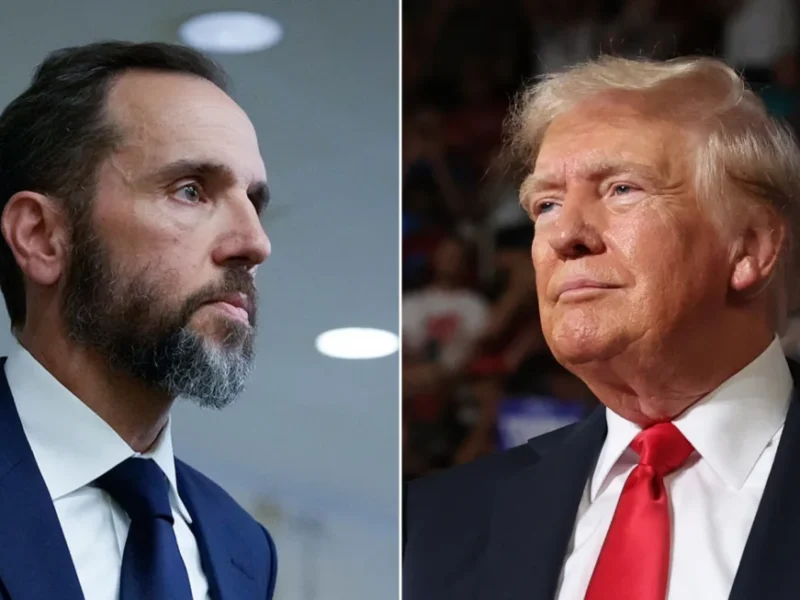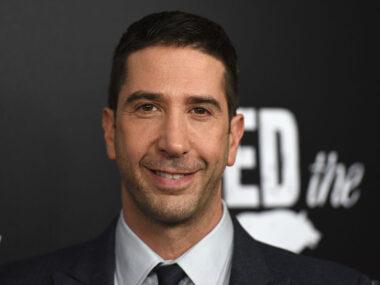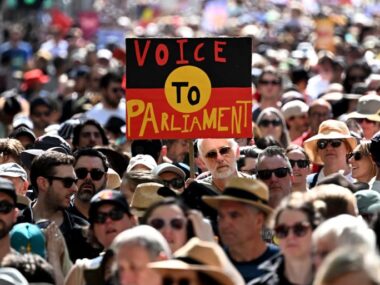Former President Donald Trump and special counsel Jack Smith are in disagreement over the progression of the election subversion case in Washington, DC, as outlined in a status report filed last Friday. Neither party seems eager to expedite the trial before the November presidential election or even before the end of this year.
Smith has not proposed firm dates for the next phase, while Trump has put forward a timeline for pre-trial disputes that extends into early 2025. According to Trump’s proposed schedule, it could potentially stretch into fall 2025 if “additional proceedings” are required.
The filing anticipates a potentially contentious hearing next week at the federal courthouse in DC, where Judge Tanya Chutkan will decide on the next steps for the case. This hearing will be the first since a landmark Supreme Court decision that granted Trump some immunity in the election subversion prosecution. The timing of the filing follows shortly after the special counsel modified his indictment to align with the Supreme Court’s ruling from this summer.
Trump plans to contest Special Counsel Jack Smith’s appointment before addressing any issues related to immunity.
In a recent filing, the parties in the case disagree on the order in which legal issues should be addressed and whether certain matters can be handled concurrently.
Special Counsel Jack Smith wants Judge Tanya Chutkan to prioritize the questions related to the Supreme Court’s recent decision on presidential immunity. He suggests these issues can be handled while also dealing with other pre-trial matters that Trump intends to raise.
Trump, however, plans to first challenge the legality of Smith’s appointment and believes the judge should address that issue before considering the immunity question. He also intends to seek the case’s dismissal, alleging that the grand jury, which approved the new superseding indictment, considered “immunized evidence” based on presidential conduct protected by the Supreme Court’s ruling.
Trump’s legal team has indicated other potential challenges to the charges, arguing that each issue should be addressed separately and in a specific order, potentially extending the case timeline. One such challenge might involve the “improper use of allegations” related to former Vice President Pence.
Additionally, Trump’s team is considering a challenge based on the Supreme Court’s ruling in a U.S. Capitol riot case, which restricted how prosecutors could apply obstruction charges against January 6, 2021, defendants.
Trump’s attorneys emphasized that fully exploring and resolving these motions would require significant time and resources, and their proposed timeline reflects this while still aiming to move the case forward promptly.
Trump advocates for an extended procedure to settle immunity issues in the case.
A key point of contention between Smith and Trump involves the procedure for determining whether presidential immunity applies to parts of the superseding indictment.
Prosecutors propose initiating this dispute with an opening brief outlining their reasons why the new indictment aligns with the Supreme Court’s immunity decision. Trump would then submit a response, followed by a prosecutor’s reply, according to Smith’s plan.
The prosecutors indicated their readiness to file the opening immunity brief whenever the court deems appropriate, leaving the timing decision to Judge Chutkan.
Trump, however, disagrees and suggests a more extended process. He proposes that he should file the initial brief challenging the indictment on immunity grounds and argues for additional discovery from the government to support his position. His proposed timeline includes an extra round of briefings concerning any immunity-related records the government withholds, potentially delaying resolution of these disputes until late January at the earliest.
Prosecutors reduced the scope of allegations following the immunity ruling.
Prior to the issuance of the superseding indictment on Wednesday, prosecutors dedicated eight weeks to evaluating which evidence and allegations could still be included, considering the immunity ruling. This approach indicated Smith’s team’s intent to proceed carefully.
The revised indictment excluded allegations that Trump had attempted to use the Justice Department to advance his 2020 election reversal efforts and removed evidence linked to conversations with his presidential advisers.
Nevertheless, Smith’s team maintained all four original charges, including conspiracy and obstruction, which Trump had previously pleaded not guilty to.
Before Trump’s successful appeal to the Supreme Court, the federal election interference case was progressing rapidly, with a trial initially scheduled for last March.
Trump’s strategy has consistently been to delay proceedings, and he has accused prosecutors of meddling in the 2024 election. On Truth Social, Trump described the superseding indictment as a “direct assault on Democracy!”
The Justice Department typically avoids major public investigative actions within 60 days of an election to prevent impacting candidates. This quiet period is set to begin next week. However, this policy is not absolute. In the classified documents case in Florida against Trump, another case brought by Smith, a prosecutor noted in March that the policy does not apply to cases already charged.










